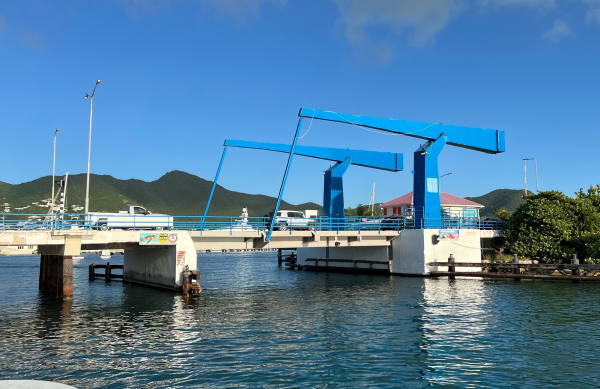 PHILIPSBURG:--- The Police Force of Sint Maarten (KPSM)takes this opportunity informs the general public on certain measures being taken in connection with the commencement of the 46th edition of the St. Maarten Heineken Regatta, which will take place from March 5th to March 9th, 2026.
PHILIPSBURG:--- The Police Force of Sint Maarten (KPSM)takes this opportunity informs the general public on certain measures being taken in connection with the commencement of the 46th edition of the St. Maarten Heineken Regatta, which will take place from March 5th to March 9th, 2026.
During the Regatta period, KPSM will implement several road safety and traffic management measures to ensure the safety of all road users and to secure the free flow of traffic, particularly along Union Road, which is expected to experience increased traffic due to Regatta-related activities.
Traffic Diversion – Union Road (Weekend Measures)
During the Regatta weekend, the following temporary measure will be enforced:
- Motorists traveling on Union Road will NOT be permitted to make a left turn into the entrance of Port de Plaisance.
- Drivers wishing to access Port de Plaisance must proceed toward the roundabout in the Bellevue direction and then return toward the entrance of Port de Plaisance from that route.
This measure is necessary to prevent congestion and to maintain a steady and safe flow of traffic.
Parking Advisory
KPSM reminds the public that there is sufficient parking available on the property of Port de Plaisance.
Drivers are strongly advised not to park alongside Union Road. Vehicles parked in a manner that obstructs or endangers the free flow of traffic may be towed at the owner’s expense.
Public Safety Tips for Persons Attending the Shows at Port de Plaisance
KPSM encourages all persons attending the Regatta shows and events to keep the following safety tips in mind:
- Do not drink and drive. Arrange for a designated driver or use a taxi service if you plan to consume alcohol.
- Secure your personal belongings. Keep bags and valuables close to you at all times.
- Be mindful of your surroundings. Report any suspicious activity immediately to the nearest police officer.
- Follow instructions from law enforcement and event security personnel.
- Park only in designated areas.
KPSM counts on the cooperation and understanding of the community and visitors during this major international event. Our officers will be actively present to guide traffic, maintain public order, and ensure that all festivities proceed in a safe and orderly manner.






 PHILIPSBURG:--- The Dutch police forces of the Dutch Caribbean, united under the College van Korpschefs, hereby announce the launch of a coordinated Interinsular Gun Buyback and Firearm Surrender Action.
PHILIPSBURG:--- The Dutch police forces of the Dutch Caribbean, united under the College van Korpschefs, hereby announce the launch of a coordinated Interinsular Gun Buyback and Firearm Surrender Action. SIMPSON BAY:--- Representatives of Princess Juliana International Airport (IATA: SXM) are participating in Routes Americas 2026 in Rio de Janeiro, Brazil, presenting a renewed strategy focused on strengthening the airport’s global position, with particular interest of expanding into the South American market.
SIMPSON BAY:--- Representatives of Princess Juliana International Airport (IATA: SXM) are participating in Routes Americas 2026 in Rio de Janeiro, Brazil, presenting a renewed strategy focused on strengthening the airport’s global position, with particular interest of expanding into the South American market. POINTE BLANCHE:--- Port St. Maarten Group (PSG) advise motorists that in connection with the 46th edition of the St. Maarten Heineken Regatta, scheduled for March 5–8, an adjusted Simpson Bay Bridge opening schedule will be in effect in addition to the regular daily openings.
POINTE BLANCHE:--- Port St. Maarten Group (PSG) advise motorists that in connection with the 46th edition of the St. Maarten Heineken Regatta, scheduled for March 5–8, an adjusted Simpson Bay Bridge opening schedule will be in effect in addition to the regular daily openings.  PHILIPSBURG:--- The Department of Youth has spearheaded another youth-led research initiative aimed at strengthening youth participation and advancing Sint Maarten’s commitment to becoming a more child-friendly and youth-responsive community.
PHILIPSBURG:--- The Department of Youth has spearheaded another youth-led research initiative aimed at strengthening youth participation and advancing Sint Maarten’s commitment to becoming a more child-friendly and youth-responsive community.




